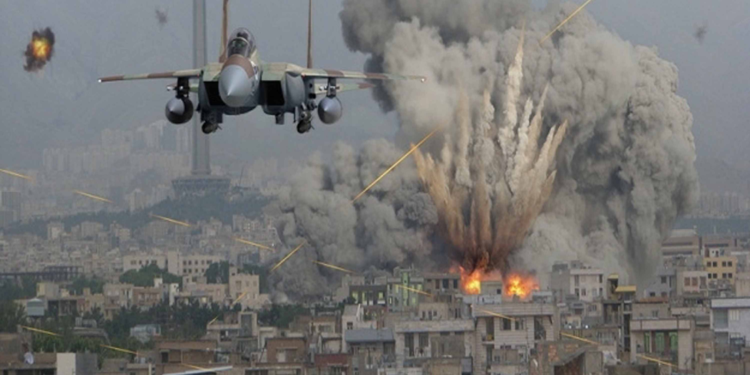
The Independent criticized the Western attitudes towards the silence of the Yemen war, stressing that the Saudi regime is buying the silence of the arms deals to continue committing war crimes.
Writer Borzou Daragahi says that Western powers can help end the war against Yemen, but they are keen to keep them raging to preserve their economic gains, despite their contribution to increasing the misery and suffering of the 25 poor million Yemenis.
He adds in an article published by The Independent, that the conflict in Yemen is one of the most conflicts in the world that can be solved easily if the international and Western powers are sincere in intentions rather than ignoring the matter.
The author believes that the Western powers – especially the United States and France – are keen on continuing the war because they sell more weapons to Saudi Arabia, which provides diplomatic cover for the continuation of the conflict in Yemen.
Draghi says that among the many horrific events that occurred in the Middle East last week, the unnoticed story was that a soldier in the Yemeni government forces discovered that he would not receive his salary, so he immediately shot himself inside the headquarters of the “1st Brigade Infantry” In Aden.
He adds that the death of this young soldier, apparently terrified by his inability to feed his family, is a reminder of the misery surrounding the Yemen war without stopping, and it is one of the many fierce conflicts that have transformed vast areas of the Middle East and North Africa into scenes of terror and deprivation.
He says that, unlike Syria, Yemen does not have much of any interest in any of the world’s major powers, and that – unlike Iraq and Libya – it does not have much oil.
He believes that Yemen is a country bordering an unimportant strait, through which a small part of the world’s shipping passes.
He adds that all warring parties in Yemen – unlike the Taliban in Afghanistan, and retired Major General Khalifa Haftar in Libya – have shown that they can share power.
The writer notes that the war in Yemen, like the rest of the wars, produced the exploiters who see an interest in them in the continuation of the conflict.
But Yemen is still one of the poorest countries on earth, and there is not much to exploit, and more importantly, there is a minor strategic point in continuing this war.
“Imagine if, instead of bankrolling the war over the last five years, Riyadh had instead invested half that money in Yemeni education and agricultural projects – perhaps even found a paying, productive job for the young man who shot himself dead over unpaid wages last week,” the author said.
He notes that the peace talks between the warring parties that started late last year have gone nowhere and that there are indications that the fragile truce on the coastal city of Hodeidah is collapsing.
The writer believes that Saudi Arabia and the UAE and their partner Egypt buy a lot of weapons in light of the continuation of this conflict and that they provide job opportunities and bring financial benefits to the Western powers.
However, he concludes by saying that the war in Yemen has become more complex and dangerous and that if the Western economies are so weak that they depend on increasing the misery and suffering of the 25 million Yemenis who are already poor, these economies do not deserve a recovery.